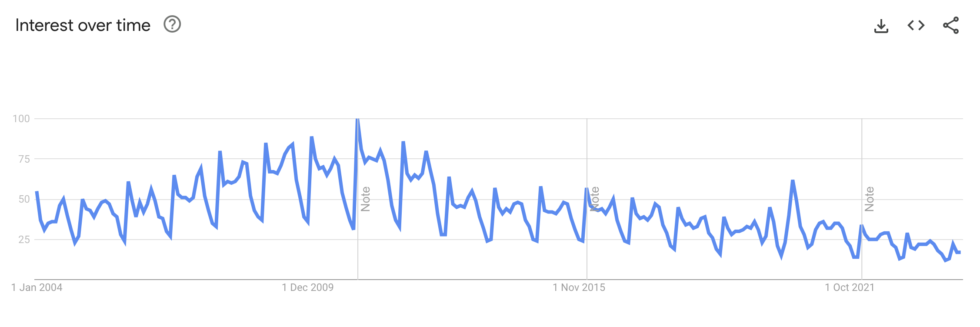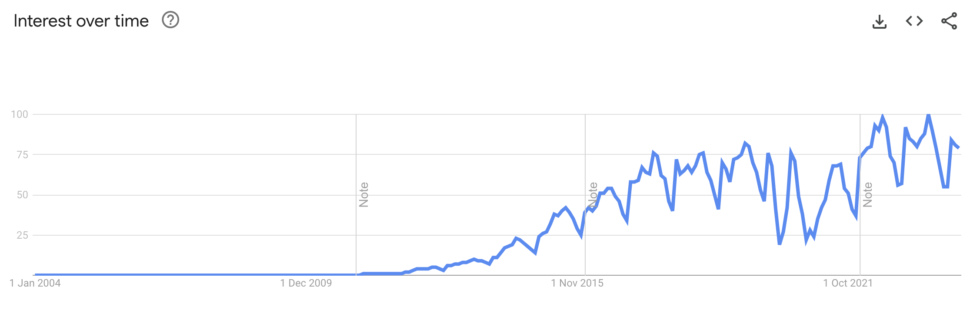From Recognition to Conversion: SEO’s Role in Exploiting Familiarity Bias
Alastair Kane Search Marketing, Search Marketing PartnerRead it in 7 minutes
Read it in 7 minutes
Table of contents
In the 1970s Pepsi introduced one of the most iconic marketing campaigns of all time – the Pepsi Challenge.
The campaign centred around blind taste tests where participants would taste both brands of cola and decide which one they preferred.
The results were in favour of Pepsi – participants picked their favourite as Pepsi 57% of the time.
But Pepsi has always been the underdog in the battle of the cola wars, despite it being the better tasting beverage.
If taste is generally a big consideration for consumers, why does Coke still have a bigger market share than Pepsi?
It could be something to do with a concept called familiarity bias.
Familiarity bias is a cognitive bias leading people to prefer familiar things over unfamiliar ones. It can impact decision-making in areas such as product selection and stock investments and is a concept that can significantly help or hinder marketing efforts.
As in the world of cola, consumers generally have a tendency to favour brands they’re familiar with, be that a toothpaste brand, car make or preferred hoover.
Think about it – how many times have you opted for a brand you know rather than trying something new, simply because it feels safe and comfortable?
Marketers often leverage this bias by focusing on building brand awareness and creating strong brand recognition through consistent messaging.
Familiarity bias is also likely to be at play on search engine results pages (SERPs).
I know from personal experience that I don’t always click the top ranking results.
There are countless times that I have Googled something and clicked on a result towards the bottom of the page because I’m more familiar with that particular brand.
Ultimately brand recognition is more desirable than a top position in Google.
But on the flip side, ranking in SERPs in the first place is essential to building that brand recognition.
SEO is great at improving keyword visibility in the SERP. However, the biggest benefit of having better visibility is building brand recognition and capitalising on familiarity bias – so that when customers want to buy a product, they choose your brand over your competitors.
If I am looking for a holiday rental, for example, my familiarity bias will influence me to go to visit AirBnB.
Interestingly, Google Trends data shows a decline in search volume in the UK for holiday rentals from around 2010 onwards.

Around about the same time as Airbnb started.
That’s because Airbnb had such strong brand recognition that people were searching for ‘Airbnb’ directly rather than ‘holiday rentals.’ Look at how the interest in search for Airbnb starts increasing around the same time as search interest in holiday rentals declines.

After 2010, Airbnb was able to exploit familiarity bias as the brand became more recognisable and trusted.
A well planned and executed SEO strategy that is implemented consistently over the long haul, will grow brand awareness in search.
The more people find you, the more familiar they become with your brand and the more likely they are to seek you out when ready to buy.
Here are 3 ways SEO can induce familiarity bias.
1 Repeated Exposure
SEO aims to increase the visibility of a website or brand by ranking higher in the SERP.
When a website consistently appears at the top of the search results for certain keywords, users are repeatedly exposed to the business.
Over time this can lead to familiarity bias, where users develop a preference for the familiar site simply because they encounter it more frequently (and hopefully because it’s also providing useful information).
This leads to an increased likelihood of people buying from the brand when they are actively looking for a product or solution.
2 Trust and Authority
Websites that consistently rank high for topics are seen as being more trustworthy.
This perceived trustworthiness further compounds the impact of familiarity bias.
Users become accustomed to seeing a certain brand at the top of the SERP for a range of related topics and keywords. As users start to consume the brand’s content and find it useful, that trust grows.
And even if they’re not actually clicking into an article, the fact that they keep seeing the brand name – or getting some information in a featured snippet – will build trust.
As a consequence they will actively start to seek out the brand even if they are in a low position on the SERP.
For instance, I will often look for Hubspot content even though it may not be ranking no.1. This is because I know, from past experience, that their content is generally very helpful and I can be certain that my query will be answered.
3 Brand Consistency
Having a consistent message across all channels is important for nurturing brand recognition and familiarity bias.
In order for SEO to drive familiarity bias, it’s important that the strategy is integrated into the wider B2B marketing plan, and not viewed as an ‘add on’ to existing tactics.
The buyer journey is complex with many touch points. The messaging communicated by SEO content and the website needs to be aligned with what is being communicated on social channels for example.
Although many companies are turning to AI to create content for SEO purposes, scaling content with AI is actually a hindrance to developing a strong brand.
Brand development requires creativity, which LLMs lack.
AI content lacks the human touch, context and creativity needed to truly connect with the audience on a personal level – and it’s also not very good at using a specific and consistent tone (which is important for brand building).
For example, how can a B2B company selling software to a niche audience truly connect with that audience in a meaningful way with content generated from an LLM?
AI doesn’t have the context of their specific niche, and it can’t speak to their existing customers to understand why they needed the solution and what it’s helped them achieve.
Businesses that are churning out AI produced SEO content to build brand recognition in search are likely to struggle to build trust and will lead to a ‘me too’ brand that won’t have the necessary level of differentiation required to succeed in the long run.
Brand awareness is crucial to the success and longevity of any business. It can act like a competitive moat by helping to establish a strong and recognizable identity that results in familiarity bias.
And SEO has an important role to play in developing brand awareness in search.
If a business has content ranking on page 1 that addresses the needs of the target customer, they will build trust with that customer over time. Eventually the searcher will seek out the company when they are ready to buy -just like Coke is still people’s first thought when they fancy a cola.
Despite Pepsi’s campaign in the 1970’s to win market share, in 2024 Coke is still the leading soda in the USA with 46% market share – compared with 25% for Pepsi.
In the end the Pepsi Challenge wasn’t enough to sway the familiarity bias of Coke lovers!
Sign up to receive B2B Search Marketing Insights direct to your inbox
Book a call to discuss your business' search marketing needs
Book a call